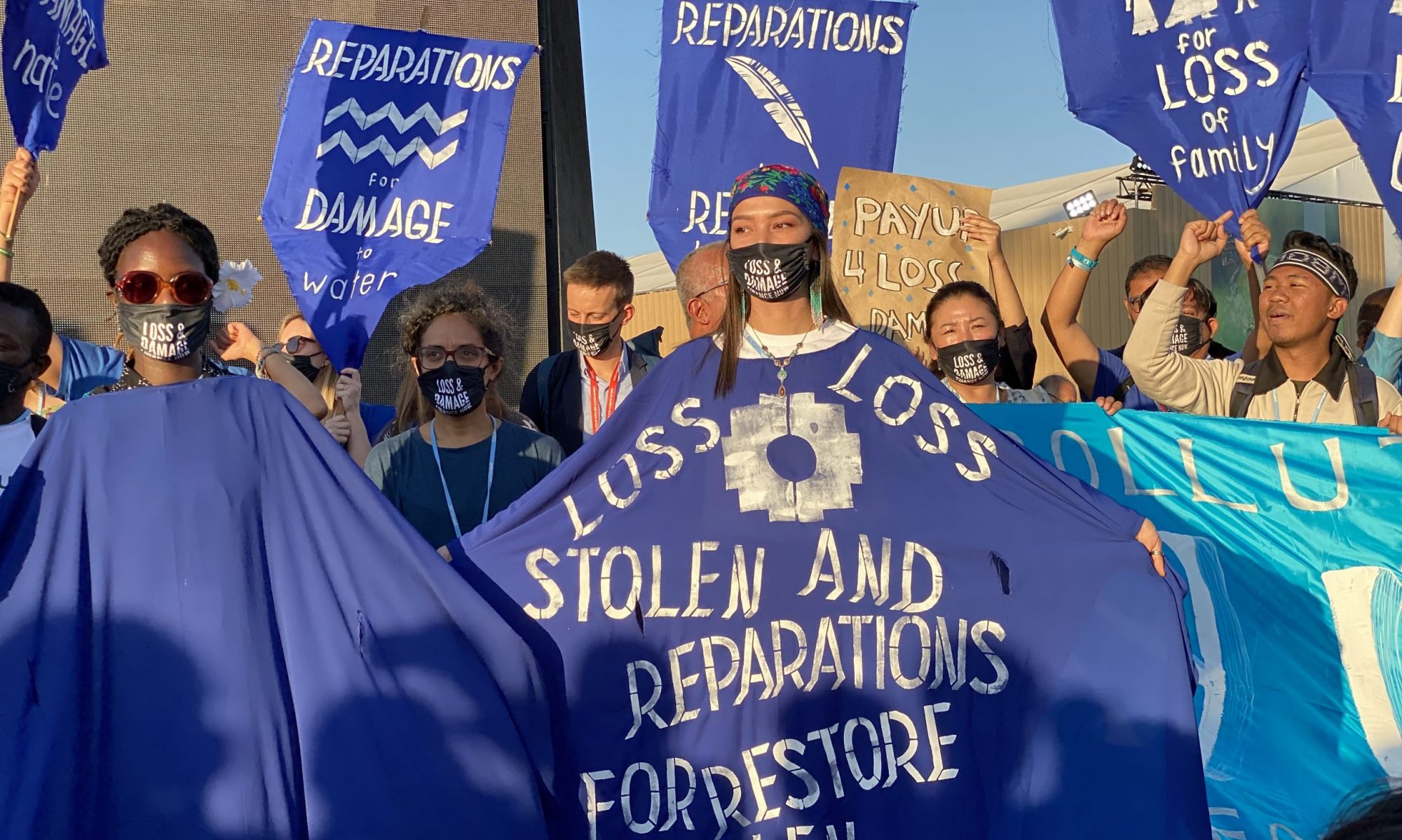This is the introduction to the event, COP27 Debrief – Beyond Doomism and Solutionism in Response to Climate Change.
Good evening, I am Dr. Sharon Stein, Assistant Professor in the Department of Educational Studies. Thank you so much for joining us. I want to begin our session today by acknowledging that the University of British Columbia (UBC) is located on the traditional, ancestral, and unceded territories of the Musqueam Nation, and I am also calling in today from Musqueam territory. Although we often discuss the climate and nature emergency (or the CNE) as if it were a fairly recent development, Indigenous Peoples here in what is currently known as British Columbia and around the world have already been facing this emergency for hundreds of years, since the onset of colonialism.
In the context of their own work, and in their interventions at COP27, each of our panelists have advocated that the rights and knowledges of Indigenous Peoples should be centered in responses to the CNE, given that Indigenous Peoples are not only on the frontlines of climate change and biodiversity loss, but they also hold deep intergenerational knowledge about, and relationships to, their territories. Therefore, they know best how to protect these territories and adapt in response to emerging changes. As we proceed with our discussion, I invite us to consider: What would climate action, including climate action at a place like UBC, look like if it truly centered Indigenous rights and knowledges?
The title for this session was inspired by a recent op/ed authored by Dr. Vanessa Andreotti, Chief Ninawa Huni Kui, and myself. In the piece, we use the notion of “wicked problems” as an entry point for addressing different possible educational responses to the CNE. The term “wicked problems” is borrowed from systems theory and the field of design. They define as wicked problems as problems that are: hyper-complex, multi-layered, made up of an assemblage of interlocked problems (in which every problem is a symptom of another problem, and the solution for one problem creates problems in other layers), and characterized by lengthy and uncertain timescales.
Arguably, the CNE is not just a wicked problem, but a super wicked problem. That is, wicked problems for which: time is running out; those who cause the problem also seek to provide a solution; a central authority to address the problem is weak or non-existent; and tends to be addressed by irrationally discounting future impacts.
In the op/ed, we talk about the mismatch between our existing (modern/colonial) educational institutions, and the current context of the CNE and other wicked problems. In brief, modern/colonial education prepares us to seek and expect clear, simplistic solutions and promises a hopeful future. Yet given their many layers of complexity, super wicked problems do not have clear, simplistic solutions. And, therefore, we also do not know what the future might entail. Thus, this kind of education leaves people unprepared to face wicked problems like the CNE, and may leave them feeling overwhelmed and alienated when they confront the true magnitude and complexity of these problems.
However, we also find that when we discuss the limits of the climate solutionism that is encouraged in mainstream education, we are read as wanting people to feel discouraged and hopeless about climate action – in other words, we are read as climate doomists. In fact, what we are seeking is neither doomism nor solutionism, but a critically engaged climate education that could prepare people to be resilient, responsible, and aware of the kind of false climate solutions that are often offered in contexts like COP. In this session, we will hear from three UBC faculty who recently attended COP27 in Egypt about how we might gesture beyond the binary of doomism vs solutionism.
Before we dive into conversation, I will introduce our panelists, Dr. Pasang Yangjee Sherpa, Dr. Vanessa Andreotti, Dr. Shannon Waters, and Charlotte Taylor.
